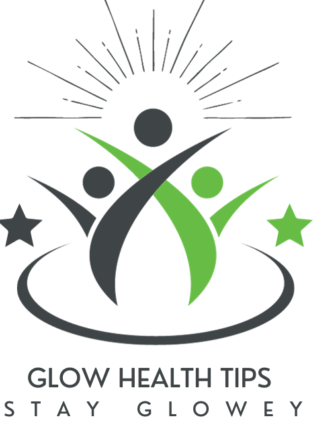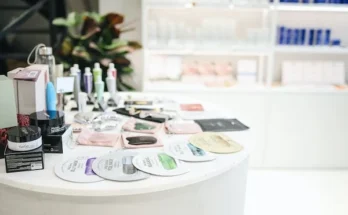Millions of individuals globally suffer from acne, a common skin condition. For teens and young adults in particular, it can be a frustrating and embarrassing issue. Fortunately, there are numerous efficient treatments for acne accessible right now. In this piece, we’ll go over some of the best advice and treatments for preventing and treating acne, including cleansers, exfoliants, and products that contain salicylic acid and benzoyl peroxide, among other acne-fighting ingredients.

Table of Contents:
- Understanding Acne
- Causes of Acne in Women
- Types of Acne
- Non-inflammatory Acne
- Inflammatory Acne
- Over-the-Counter Acne Treatments for Women
- Benzoyl Peroxide
- Salicylic Acid
- Sulfur
- Retinoids
- Prescription Acne Treatments for Women
- Topical Antibiotics
- Oral Antibiotics
- Hormonal Therapy
- Isotretinoin
- Natural Acne Treatments for Women
- Tea Tree Oil
- Witch Hazel
- Aloe Vera
- Green Tea
- Zinc Supplements
- Skincare Tips for Women with Acne-Prone Skin
- Cleansing
- Moisturizing
- Sun Protection
- Makeup
- Conclusion
- FAQs
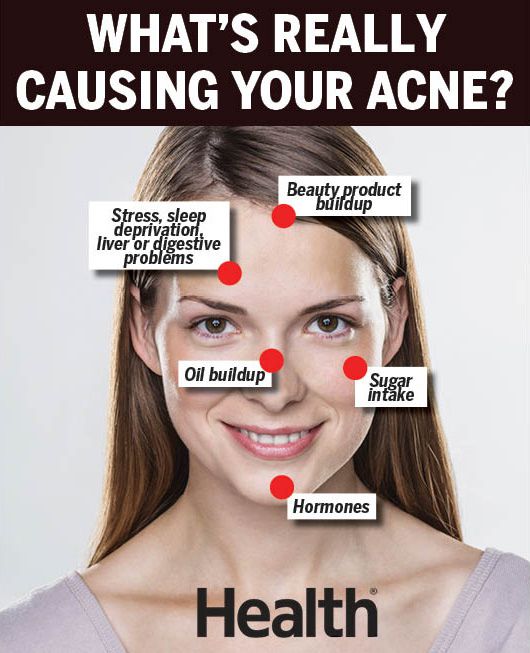
Causes of Acne in Women:
The emergence of acne in women can be attributed to a number of variables. These consist of:
-
Hormonal changes:
Changing hormone levels during adolescence, pregnancy, menstruation, and menopause can increase the skin’s production of oil and cause acne to appear.
-
Genetics:
Because acne can occur in families, you may be more likely to get it if your parents or siblings did.
-
Stress:
Stress can cause the chemicals that contribute to acne to be released.
- Skincare items: Certain items, like oily moisturizers and heavier makeup, can clog pores and promote the growth of acne.
Types of Acne:
Acne can be categorized into two main types: non-inflammatory acne and inflammatory acne.
Non-inflammatory Acne
Blackheads and whiteheads also referred to as comedones, are a feature of non-inflammatory acne. These are brought on by the accumulation of oil and dead skin cells in hair shafts.
Inflammatory Acne:
Pimples, nodules, and cysts that are red, swollen, and excruciating are the hallmarks of inflammatory acne. These develop when bacterial infections cause inflammation in the hair shafts.
Over-the-Counter Acne Treatments for Women:
For ladies, there are many over-the-counter acne treatments that work. These consist of:
Benzoyl Peroxide
A potent acne treatment, benzoyl peroxide works by eradicating acne-causing germs and lowering inflammation. It is offered in a variety of concentrations, from 2.5% to 10%.
Acid Salicylate
Salicylic acid is a beta-hydroxy acid that aids in skin exfoliation and crevice cleaning. It comes in a variety of concentrations.
Sulfur
Natural mineral sulfur helps to clear blocked pores, absorb extra sebum, and lessen inflammation. It is frequently present in topical therapies for acne.
Retinoids
Retinoids are a subclass of vitamin A derivatives that facilitate skin cell renewal, decrease inflammation, and unclog pores. They come in a variety of formulas and strengths, including gels, creams, and serums.
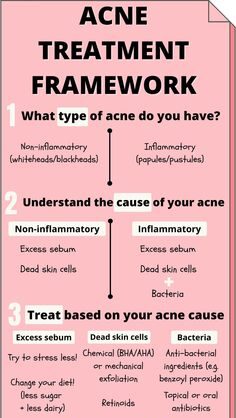
Prescription Acne Treatments for Women:
Prescription medications might be required for ladies with more severe acne. These comprise:
Topical Antibiotics
Topical medicines like clindamycin and erythromycin function by eradicating acne-causing bacteria and decreasing inflammation.
Oral Antibiotics
For moderate to severe acne, oral antibiotics like doxycycline and minocycline are recommended. They function by eradicating acne-causing germs and lowering inflammation
Hormonal Therapy
Women whose acne is brought on by hormonal changes may benefit from hormonal treatment, such as birth control pills and spironolactone. These drugs function by controlling hormone levels and lowering skin sebum production.
Isotretinoin
Accutane, another name for isotretinoin, is a potent drug used to treat serious cystic acne. It functions by lowering skin oil production and halting the development of new acne.
Natural Acne Treatments for Women:
In addition to over-the-counter and prescription drugs, there are a number of all-natural treatments for acne in ladies. These consist of:
Tea Tree Oil
Natural antiseptic tea tree oil aids in the destruction of acne-causing germs and the reduction of inflammation. It can be used as a standalone product on the face or combined with a moisturizer or cleanser.
Witch Hazel
A natural astringent that aids in pore tightening and irritation reduction is witch hazel. It can be mixed with a toner or applied to the face with a cotton ball.
Aloe Vera
The natural anti-inflammatory properties of aloe vera serve to calm and heal the skin. It can be used as a moisturizer additive or applied straight to the skin.
Green Tea
Natural antioxidants like those found in green tea help to lower inflammation and shield the epidermis from harm. You can drink it as tea or use a toner or lotion to apply it topically.
Zinc Supplements
Zinc is a mineral that aids in controlling skin sebum production and lowering inflammation. It can be consumed as a supplement or is present in foods like almonds, seeds, and oysters.
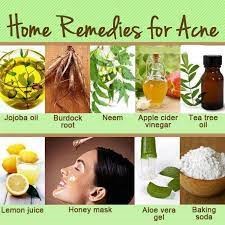
Skincare Tips for Women with Acne-Prone Skin:
Women with acne-prone skin should adhere to a suitable skincare regimen in addition to using the appropriate acne treatments. Here are a few pieces of advice:
Cleansing
Use a gentle cleanser to wash your skin twice daily to get rid of makeup, oil, and dirt. A harsh scrub or hot water should be avoided because they can irritate the epidermis.
Moisturizing
To keep your face hydrated without clogging pores, use a light, oil-free moisturizer.
Sun Protection
To shield your skin from the sun’s damaging UV rays, wear sunblock with at least SPF 30.
Makeup
To shield your skin from the sun’s damaging UV rays, wear sunblock with at least SPF 30.
Conclusion:
Although acne can be a frustrating and embarrassing skin condition, it can be successfully managed with the correct skincare regimen and treatment. Natural cures, over-the-counter and prescription medicines, and appropriate skincare.
FAQs:
-
What factors affect women’s acne?
Numerous variables, such as hormonal changes, genetics, stress, and specific medications, can contribute to female acne.
-
How long do acne remedies take to work?
Depending on the type of treatment used and the severity of the acne, different treatments require different amounts of time to work. While some treatments may produce effects in as little as a few days, others may require several weeks.
-
Do specific meals contribute to acne?
Some evidence points to the possibility that certain foods, including dairy and those with a high glycemic index, may lead to acne in some individuals. To fully grasp the connection between diet and acne, more study is necessary
-
Can cosmetics aggravate acne?
If comedogenic or oily makeup is used, wearing cosmetics may make acne worse. There are numerous non-comedogenic and oil-free makeup choices, though, that can be suitable for skin that is prone to acne.
-
Are natural acne treatments safe to use?
Although natural treatments for acne can be helpful, it’s important to use caution and do your study before applying any. Certain natural ingredients may interact with some medicines and may irritate people or cause allergic responses. The best course of action is to speak with a dermatologist before trying any novel remedies or goods
-
-
